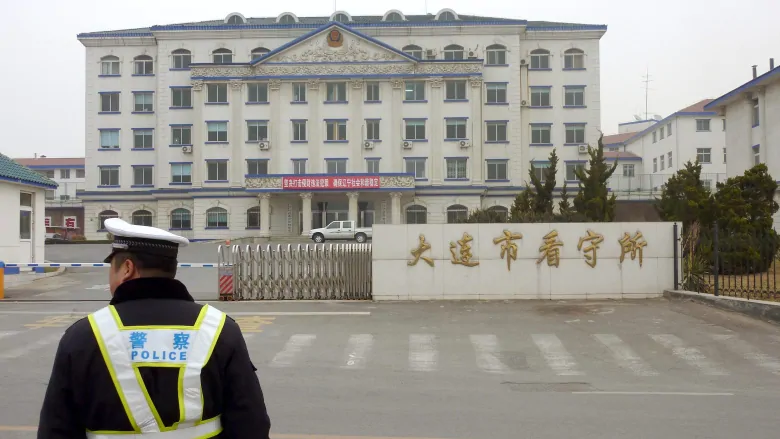Trudeau says China is acting arbitrarily in applying death penalty in this case
A Chinese court on Monday sentenced a Canadian man to death for drug smuggling after prosecutors said an original 15-year sentence given in November was too lenient.
Dalian Intermediate People's Court in the northeast province of Liaoning retried Robert Lloyd Schellenberg and decided on execution, the court said in a statement on its website.
The case will further test bilateral relations, already tense since Canada's arrest of Huawei chief financial officer Meng Wanzhou at the request of the United States in December, followed by China's detention of two Canadians on suspicion of endangering state security.
Schellenberg was told in court he has the right to appeal to Liaoning High Court within 10 days upon receiving the ruling, the court said in second statement. It said he was involved in organized international drug crimes.
A Chinese court on Monday sentenced a Canadian man to death for drug smuggling after prosecutors said an original 15-year sentence given in November was too lenient.
Dalian Intermediate People's Court in the northeast province of Liaoning retried Robert Lloyd Schellenberg and decided on execution, the court said in a statement on its website.
The case will further test bilateral relations, already tense since Canada's arrest of Huawei chief financial officer Meng Wanzhou at the request of the United States in December, followed by China's detention of two Canadians on suspicion of endangering state security.
Schellenberg was told in court he has the right to appeal to Liaoning High Court within 10 days upon receiving the ruling, the court said in second statement. It said he was involved in organized international drug crimes.
"It is of extreme concern to us as a government, as it should be to all our international friends and allies, that China has chosen to begin to arbitrarily apply [the] death penalty, as in this case facing a Canadian," he told reporters Monday morning.
Trudeau said Canada will always intervene when a Canadian is sentenced to death in another country.
China upset over Huawei arrest
Schellenberg has been detained in Liaoning since 2014, predating the detention of former Canadian diplomat Michael Kovrig and businessman Michael Spavor.
He was originally sentenced in November but appealed, the reason for the retrial.
At the appeal hearing, prosecutors argued Schellenberg was likely to be part of an international drug smuggling operation. The Appeals Court agreed and ruled the "light punishment" of the 15-year sentence was "obviously inappropriate."
China treats drugs offences seriously and is known to use severe punishment.
In 2009, China executed a Briton caught smuggling heroin, prompting an outcry back in the United Kingdom. Gordon Brown, British prime minister at the time, condemned the killing of Akmal Shaikh, while the man's friends and supporters claimed he was mentally unstable and unwittingly lured into the crime.
Justice Minister David Lametti, who was only just sworn in Monday morning, said he still has to be officially briefed on Meng's extradition case.
"I won't comment specifically, because I may have a role down the road, but I will say that we are a rule of law country, and it's one of our most important principles and as minister of justice and attorney general for Canada I will always act to protect the rule of law," he said.
The Huawei executive has since been released on bail and remains under surveillance as she prepares to fight extradition to the U.S., which accuses her of fraud and lying to banks about business activities in Iran.
Chinese officials haven't called the arrests of Kovrig and Spavor acts of retaliation, but they have pointedly compared the cases, insisting the men were detained in accordance with Chinese laws while maintaining that Meng's arrest was illegal.

